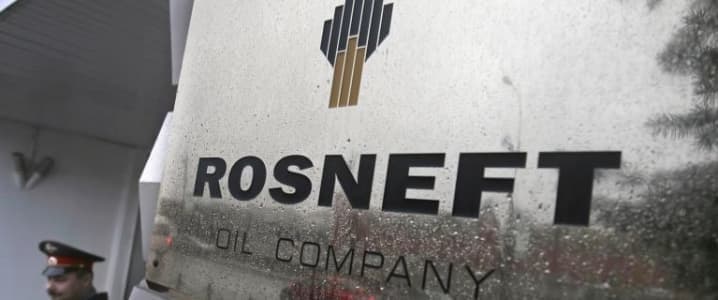Russia’s largest oil producer just flashed a signal Moscow didn’t want to see: Rosneft is recommending its smallest interim dividend since the pandemic year of 2020. For a company that has spent the past two decades styling itself as a reliable cash machine for the Kremlin, a 11.56-ruble per share payout is not just stingy, it’s a symptom.
The timing is exquisite. The proposed dividend lands one day before the Trump administration’s sanctions against Rosneft and Lukoil formally hammer into place. Investors saw this coming. Rosneft’s H1 numbers already showed Rosneft’s net income collapsing 68% in the first half of 2025, even before the new sanctions, as a stronger ruble and deeply discounted Urals barrels chewed through margins. Weak crude oil benchmarks being thrown into that mix meant Rosneft has had to grind through a tougher year than it cared to admit.
If you zoom out, the dividend cut tells a larger story about Russia’s post-Ukraine oil model. The Kremlin relies on Rosneft for over a third of national output and a fat slab of budget revenue. For 2021, Rosneft was giddy enough to recommend record payouts on soaring prices. Four years later, the same company is hoarding cash to survive sanctions that restrict shipping, trading, financing, and, importantly, its ability to move discounted barrels to buyers willing to risk a U.S. Treasury headache.
The ruble’s strength has become a perverse contributor to the pain: every dollar Rosneft earns buys fewer rubles at home. CEO Igor Sechin has been openly griping for months that Russia’s monetary policy is kneecapping exporters while OPEC+ oversupply floods the market with cheap barrels. That glut may persist well into 2026, meaning Rosneft’s margin squeeze isn’t temporary.
And yet, production itself hasn’t imploded. Rosneft keeps pumping around 3.6 million bpd, pouring money into long-cycle projects like Vostok Oil, and presenting itself as the disciplined adult among Russian producers. But discipline doesn’t create dividends; it preserves solvency.
Lukoil’s own dividend recommendation arrives next, and Moscow will be watching nervously. If Russia’s two flagship producers both tighten their belts, the Kremlin may be forced to rethink how much pressure it can afford to apply to the industry that funds its war, its budget, and its political stability.
By Julianne Geiger for Oilprice.com
More Top Reads From Oilprice.com

